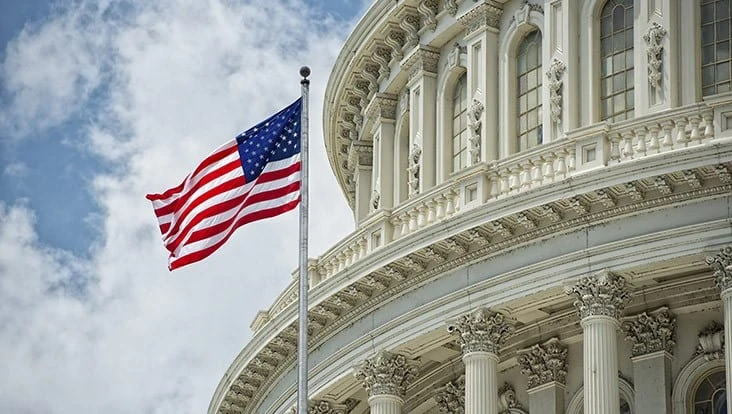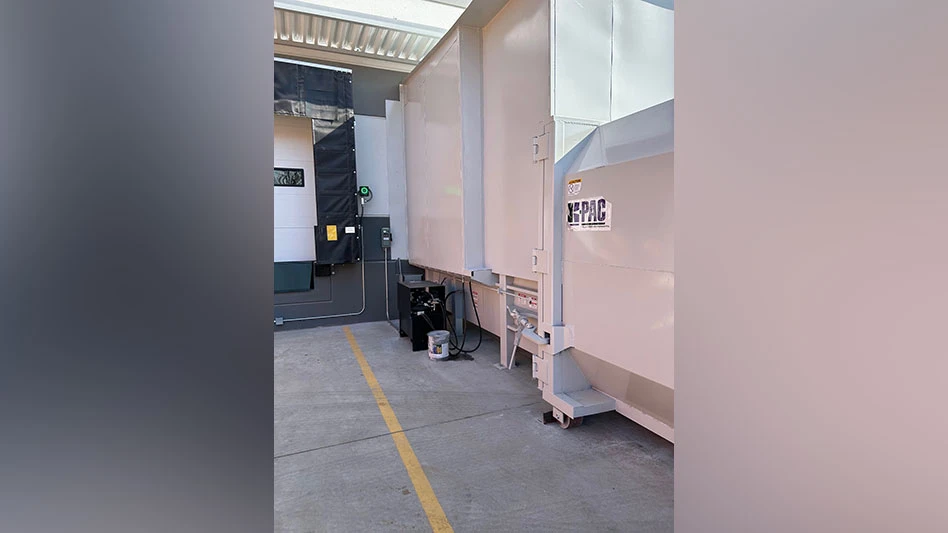
Photo courtesy of Thinkstock
The Energy and Commerce Committee Chairman Frank Pallone Jr., Environment and Climate Change Subcommittee Chairman Paul Tonko and Energy Subcommittee Chairman Bobby L. Rush introduced the Climate Leadership and Environmental Action for our Nation’s (CLEAN) Future Act to the House of Representatives March 2. The proposed legislation takes aim at the climate crisis by seeking net-zero greenhouse gas pollution by 2050, with an interim target of reducing pollution by 50 percent from 2005 levels no later than 2030.
The targets come from the United Nations Intergovernmental Panel on Climate Change, which has said carbon pollution must be cut to net zero by 2050 to avoid the most catastrophic consequences of climate change, according to the bill’s sponsors.
In addition to a number of policies aimed at dramatically cutting greenhouse gas pollution in the power, building, transportation and industrial sectors, the legislation also targets waste reduction. It does so by imposing new clean air permitting requirements on industrial facilities that produce plastic and by reforming the U.S. recycling and waste management system to ensure that producers minimize the amount of waste they generate, including by establishing postconsumer recycled content standards for everyday products and instituting a national bottle deposit program. The bill also establishes programs to invest in community-level zero-waste initiatives to improve education and outreach around waste reduction, as well as to modernize the collection, recycling and reuse of electronic waste, such as batteries.
In response to the CLEAN Future Act, which also would pause new permits for advanced (chemical) recycling facilities, Plastics Industry Association President and CEO Tony Radoszewski issued a statement:
“Addressing climate change is a laudable goal, but the Clean Future Act—as currently introduced—aims to end the manufacture of one of our country’s most valuable and sustainable materials: plastics. Multiple life cycle analyses show that plastics are the most sustainable material in comparison to all existing alternatives, including glass, aluminum and paper.
"The negative economic consequences to this action are also very real. The plastics industry employs more than 1 million individuals across the United States, whose work touches countless related industries and sectors. As our nation recovers from the economic impacts of COVID-19, we should not pursue policies that would harm employment, especially in America’s manufacturing sector.
"We already have the tools and technologies to address plastic waste and to infinitely repurpose plastic into new materials and products through advanced recycling. It’s a process that is necessary for a sustainable society, and we support measures that invest in and encourage the further development of this technology. The Clean Future Act not only ignores the extreme value of advanced recycling, it hinders further development of this technology, moving us further away from a solution that would truly address plastic waste.”
However, the sponsors of the bill say it will create jobs. “This legislation will create millions of homegrown jobs in a climate-resilient economy, ensuring our workers and businesses can compete in the 21st century transition to clean technology that’s already happening,” Pallone says.
Tanko adds, “The CLEAN Future Act will ensure America realizes the opportunities that come from embracing and accelerating the clean energy transition.”
Sponsored Content
Redefining Wire Processing Standards
In nonferrous wire and cable processing, SWEED balances proven performance with ongoing innovation. From standard systems to tailored solutions, we focus on efficient recovery and practical design. By continually refining our equipment and introducing new technology, we quietly shape the industry—one advancement at a time.
“Through policies that will create millions of new, good-paying jobs and reduce pollution in historically overburdened communities, this legislation drives our country further down the path toward a much-needed clean energy transition—and does so with equity and social justice at its center,” Rush says.
Get curated news on YOUR industry.
Enter your email to receive our newsletters.
Latest from Recycling Today
- Enfinite forms Hazardous & Specialty Waste Management Council
- Combined DRS, EPR legislation introduced in Rhode Island
- Eureka Recycling starts up newly upgraded MRF
- Reconomy Close the Gap campaign highlights need for circularity
- Nickel carbonate added to Aqua Metals’ portfolio
- EuRIC, FEAD say End-Of-Life Vehicle Regulation presents opportunity for recyclers
- Recyclers likely to feel effects of US-China trade war
- BCMRC 2025 session preview: Navigating battery recycling legislation and regulations








